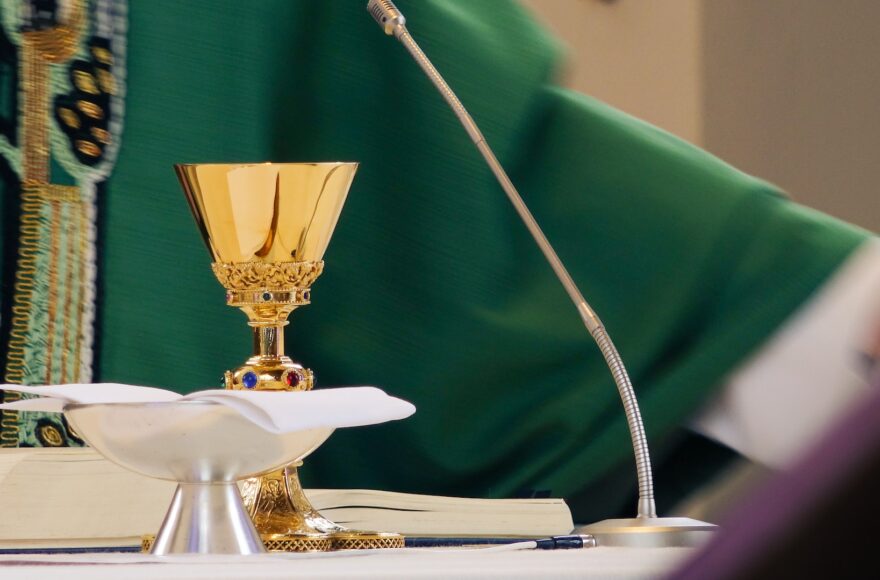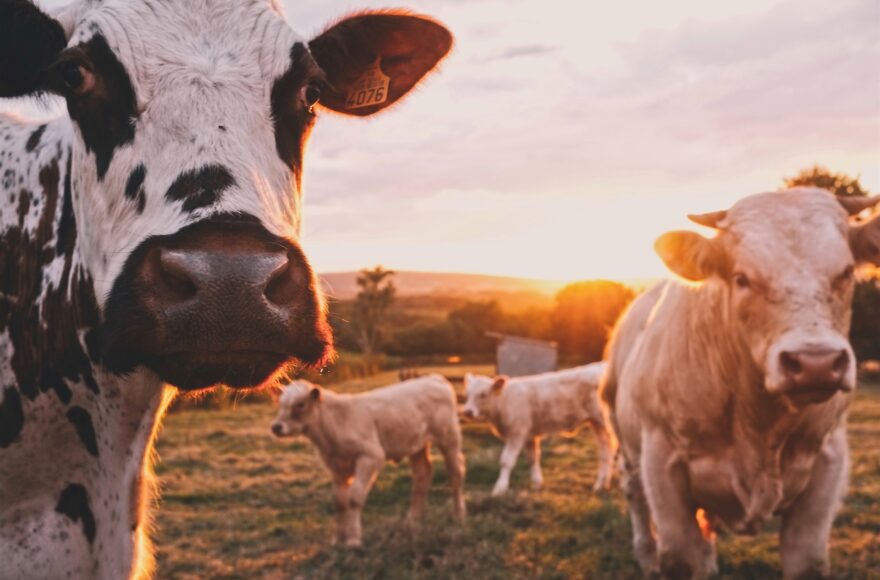Hello, Teresa

My mother, Teresa, died in 2016 and I haven’t seen her or spoken to her since. Except for this rare discussion.
Teresa: Joe, oh, it is so good to see you
Joe: Hello. (I give a little laugh) You mean you haven’t been at my side every day making sure I stay safe?
T: Oh, come on, don’t you think I have better things to do?
J: What do you do that’s better?
T: (I feel a soft pressure against my cheek) Look at you, I never imagined what you’d look like as an older man. You’re still very handsome.
J: What do you look like by the way? I can’t see you.
T: I look like whatever, or whoever you want me to look like. It doesn’t really matter, does it?
J: Well, it took some negotiating to get this interview. Did the approval come from the Holy Trinity or the beasts of hell?
T: You don’t really believe that stuff, do you? Anyway, we only have a few minutes. Is that all you want to talk about?
J: Tell me, looking back, what did you learn about life?
T: Life is hard. (Goes quiet, long silence)
J: Is that it?
T: What were you expecting? “You need to live life to the full”, “Be yourself”, “Find something you love”, “Life is the most beautiful gift”? I don’t know. If I do look back, I think life is full of black and white tableaus, and every now and then you have memories that are full of colour.
J: colour?
T: The birth of you and your brother were flashes of colour. Having grandchildren was colour. Having a fulfilling job was colour.
J: Is that it?
T: Of course not. You’re trying to get me to be lyrical. Ah, Pippo …
(It’s my name shortened in Italian and what my mother called me as a child)
T: …You’re trying to get me to appease that child inside you who needs to be told how important you are; how loved you were. One thing I learnt was that we never really grow up. We keep those moments that trouble us far longer than we need to. With your brother it was the football shoes. I thought I was protecting him. I wasn’t. I made those shoes a symbol of his childhood. I gave him a reason to feel like someone who was deprived of things all other boys had. I was wrong to do that. With you it was being born without your father present. It has always worried you. You’ve wondered if you were really wanted or loved.
J: Whoa, hold on a …
T: (She just continues on) Yes, you didn’t see your father for the first three years of your life. But they were probably the best three years. You had family, you had people who loved you.
J: Okay, okay. Hold on. We’ve never spoken about this before. I’ve never spoken to you about my thoughts on this … this history you’re talking about.
T: Angelo, always said that if we had stayed in Italy, he would have gone into the church, become a Priest. And by now, he would have been Pope.
J: I think that was a joke.
T: And what do you think would have happened if you had stayed in Italy?
J: Can I ask the questions?
T: Sorry, you’re so much older than the last time we spoke. I feel I can be more open with you, more honest.
J: Yes, don’t lose that honesty. But let me ask, did you want to go to Australia? Were you disappointed that dad didn’t return?
T: Pedalino was a very small village, in what was then, a very insignificant part of Europe. Can you imagine what it would have been like being a woman without a husband at home? And with two small children? Yes, I know you’ll ask the question, I did have a number of suitors, but my heart yearned for your father. I had two boys. The family needed to be joined back together. Your father was never coming back. If I left it any longer, the family would have been broken. Selfishly, and I am more like your brother in this sense, I did want to do something, to make a difference. That wasn’t going to happen in Pedalino.
J: What did you think when you arrived in Australia?
T: I was shocked. (Pregnant silence)
J: Do you want to elaborate?
T: (I hear a deep sigh) Your father was deeply entrenched in another family. I felt separated. I felt like I was on the outer. I felt my boys were on the outer as well, especially when you consider the environment we had just left. I can’t explain how different it was. Your father had family in Australia, I didn’t. I felt alone. I felt I was not the wife, but, what do they call it in France, the …
J: … the au-pair?
T: Yes, that’s right. And once we had arrived, what could I do then? The decision had been made; it was too late.
J: When did it first hit you that it was too late?
T: Almost immediately. When we got to stay at that old lady’s house. When I had to leave you with that woman who sat you on the verandah until I would pick you up after work. When your father listened to his cousins, and, without a word to me, bought that house riddled with termites. When I had to do all the cooking for the wake after their grandmother died. And not a word of thanks. Do you want me to continue?
J: No, I think I get it. And you think Angelo’s reaction to a pair of shoes was over the top?
T: (She gives a little laugh) Yes, sorry, I didn’t mean to go on.
J: Do you see my God Parents … where …wherever you are? And what do you talk about?
T: No, of course I don’t see them.
J: They were good to me, you know.
(Long silence)
J: Okay then, let’s continue. You know a person I worked with just died.
T: (Flippantly) It does happen
(I look toward her voice, with disappointment)
T: I’m sorry. Was he a friend?
J: No not at all. He was a writer. A songwriter and a member of my favourite band when I was a child. When I heard the news, it affected me more deeply than I would have thought.
T: When did you work with him?
J: I was in advertising. He would come into the Agency on a casual/part time basis. He was a better songwriter than a copywriter. I suppose song writing is what filled his heart with joy and advertising was there just to fill his wallet so he could write more songs.
He was around during rock and roll’s early wild days, yet he was humble and had a kind word for everybody. I always wonder about people whose star shines so brightly for a short while and when it diminishes the universe drops them back down to earth. Into the arms of a normal life. Into a life where there is no stage, no lights, no audience, no adulation.
T: Like death
(There’s a long silence)
J: You still there?
T: Yes.
J: Okay, seeing you brought it up, let’s talk about death. … You know Zack, one of my best friends?
T: Yes.
J: Well, his mother died the other day.
T: You’re having a good run.
J: Yes, I know, right? Anyway, they had an open casket at the funeral which Gabrielle and I attended. It was like she was participating but doing it lying down. Apparently, it’s a thing at Greek funerals. At the end you line up and join a procession past the coffin and pay your respects to the recently deceased and the family.
T: Did you enjoy that?
J: She looked a lot healthier than I expected. She had this noble expression on her face, like she was ready for the next phase of her … of her …
T: Travels?
J: Good enough. … When I saw her, I thought of the last time I saw you. You may not remember, but there was an open casket at your funeral. It was in a closed room and just for the family.
T: Yes, I was there.
J: I remember your expression distinctly. It’s seared on my memory.
T: Did I look noble, gallant …?
J: No, you looked completely at ease, relaxed. I was confused, as your time prior to that day I remember you being anxious, frightened. And I particularly remember the day prior to your death, with the laboured breathing. It was obvious the stroke you had placed a greater strain on your features. Who was it that I saw in that coffin? Was it you, or the artfulness of the mortician?
T: By that stage, I had already left my body. You were an alter boy, don’t you remember any of those lifeless bodies? Scratch their skin and you’d have make-up under your fingernails.
J: Yes, I remember them. I remember that something seemed to have gone, disappeared.
T: It wasn’t me anymore.
J: But where do you go, who is there, have you seen dad, your brothers, sisters, your mother, father?
T: Does it really matter? I came back for the chance to see you and your brother one more time. Angelo didn’t believe it was me. Has he always been so cynical. How could I pass up the chance to see you just one more time. That’s a privilege and I feel so blessed for the opportunity. It still pains that I can’t hug you both. Do you remember when you would hide within my coat on those cold winter evenings? Life is not all regrets, those little flashes of colour are memories you need to cherish.
Here, it’s …
(There is a long silence, and the air seems suddenly cooler.)
J: Hello? Is anybody ….
(Silence)
Postscript: It was my birthday a few days after completing the above. It was the morning of my birthday. I had been awake a couple of hours just lying in the warmth of the blankets when I fell back to sleep. My dream opened on a bright, sunny day, full of colour. I was in a garden, setting a table for lunch under a large tree. The day was comfortably warm, and the colours of the grass and sky had a vibrancy that seemed like someone had played with the dials.
I turned to go inside and just standing there, was my mother. The quiet smile that appeared on her lips was as warm and welcoming as the day. There was no sound, we spoke no words, but she came up and put her arms around me. I felt her hug wrap around me tightly and I hid my face in her shoulder and cried.
I went inside to grab other things so I could finish the alfresco setting. I knew it was a dream even when I was inside its bright stage. I knew it could not go on. I knew it was one of those colour references she had spoken about and I should cherish it.
I looked around for her, but she was gone.

